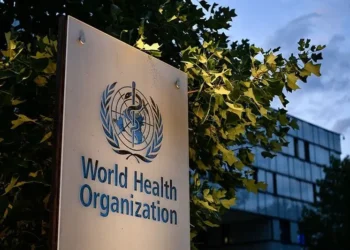The Non-Communicable Disease Alliance has warned that persons undergoing treatment for cancer, diabetes or chronic obstructive pulmonary disease are at higher risk of developing complications from COVID-19.
The NCD Alliance is a civil society network uniting 2,000 federation associations, civil society organisations, scientific and professional associations, academic and research institutions to improve non-communicable disease prevention and control globally.
Speaking at a media briefing on COVID-19 and Non-Communicable Diseases: Lessons learned from around the world’ on Wednesday, Chief Executive Officer of NCD Alliance, Katie Dain, said emerging evidence from the COVID-19 pandemic had indicated a close link between COVID-19 and NCDs.

“People living with non-communicable diseases are more vulnerable to COVID-19, with a substantially higher risk of becoming severely ill or dying from the virus.
“What this means is that those with the virus and cardiovascular disease such as hypertension and diabetes are at least twice as likely to die,” she said.
The civil society boss further stressed that people living with three or more co-morbidities such as hypertension, diabetes, asthma, tuberculosis, obesity or smoking are at higher risk of developing complications from the pandemic.
“Smoking is especially deadly – the evidence base is clearly still in development, but one study found that smokers have 14 times greater odds of developing COVID-19-associated pneumonia than non-smokers,” she said.
Meanwhile, Secretary-General Assistant, Norwegian Cancer Society, Ole Alexsander Opdalshei, said the COVID-19 global pandemic had led to a series of chain reactions in the health sector.
“At least, over 2,300 cancer cases in the United Kingdom may likely have gone unattended to because of the global attention received by COVID-19,” he said.
The NCS official canvassed urgent need for the vulnerable in society, noting that those affected by serious disease conditions are usually the last people to return to normal lives after every pandemic.
Responding to questions from PUNCH HealthWise on how cancer patients, especially those on chemotherapy, can access medical attention in the face of COVID-19, Opdalshei said it was a tight rope that demands urgent attention.
“It depends, of course; but we know that many cancer patients are deeply worried and scared.
“I do think that the most important things health authorities can do is to give information that people understands, and also — which is very important — telling cancer patients that they need to attend their planned medical treatment,” he said.








